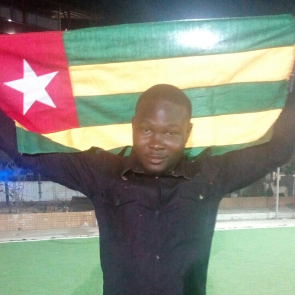Togo: Internet disruptions undermine the work of human rights defenders within the context of protest crackdowns
Front Line Defenders strongly condemns the targeted restrictions on internet access since the escalation of state violence in Togo, which severely impede the work of human rights defenders and civil society actors during a critical period of public mobilisation.
Since mid-June 2025, human rights defenders in Togo have faced increasing obstacles while carrying out their human rights work, particularly following mass citizen-led protests in Lomé on 25-27 June 2025. These mobilisations, organised by youths in response to growing frustration with governance, human rights violations, and lack of reform, were met with a violent crackdown including arbitrary arrests, beatings, and reports of extrajudicial killings.
Simultaneously, human rights defenders have experienced targeted disruptions to internet access, significantly obstructing their ability to monitor, document, and report violations. Data analyzed by researchers at Georgia Tech University using the Internet Outage Detection and Analysis (IODA) platform confirms a steep deterioration of access to platforms such as YouTube between 26 and 30 June, likely due to deliberate filtering, slowing down connection, or application-layer censorship. These findings were also supported by the Internet Society Togo, which documented widespread disruptions affecting mobile and fixed connections, particularly during the peak of the protests. According to Internet without Borders, the Togolese authorities have restricted access to several communication platforms, including Facebook, Telegram and Signal, and deliberately slowed down Internet speeds via the main access providers: Yas Togo (Togo Telecom), CanalBox (GVA CanalBox) and Moov Africa Togo (Atlantique Telecom).
Among those affected is human rights defender Foly Satchivi, former president of the student association Mouvement En Aucun Cas, who has long been targeted for his activism. On 3 June 2025, the human rights defender posted a video calling on the population to support protests demanding better living conditions, good governance, and an end to restrictions on freedom of expression which were planned to take place on 6 June 2025. On 6 June, he posted further videos documenting these demonstrations and on 26 June, he made another video calling for protests on 26-28 June. After the human rights defender began posting these videos, he was subjected to an escalating series of anonymous threats, particularly between 22 June and July, including public smear campaigns and messages inciting violence against him on social media and by telephone.
Foly Satchivi was arrested for the third time in connection with his peaceful human rights work on 7 July 2025 at his home in Bè, Lomé, by masked armed men in civilian clothing. He was taken to the Central Directorate of the Judicial Police (DCPJ). After five days in detention, he was transferred to the civil prison in Lomé. The charges against him, based on a video in which he called on the population to mobilise and participate in demonstrations in June, include “spreading false news,” “disturbing public order,” and “inciting revolt,” charges frequently used to criminalise dissent. Despite having been in detention for several weeks, he has still not been brought before a judge, and remains in pre-trial detention without a clear legal basis.
Front Line Defenders is concerned that the targeting of Foly Satchivi forms part of a broader strategy to silence dissenting voices and criminalise legitimate activism. The restrictions on internet access directly impacted his ability, and that of others, to communicate, document, and advocate during a critical moment of public mobilisation. Front Line Defenders calls on the Togolese authorities to immediately release Foly Satchivi and to drop all charges related to his peaceful activism. The organisation further calls for the authorities to lift restrictions on internet access and ensure that human rights defenders can carry out their legitimate work safely and without fear of reprisals, in line with Togo’s obligations under the African Charter on Human and Peoples’ Rights and the International Covenant on Civil and Political Rights.

